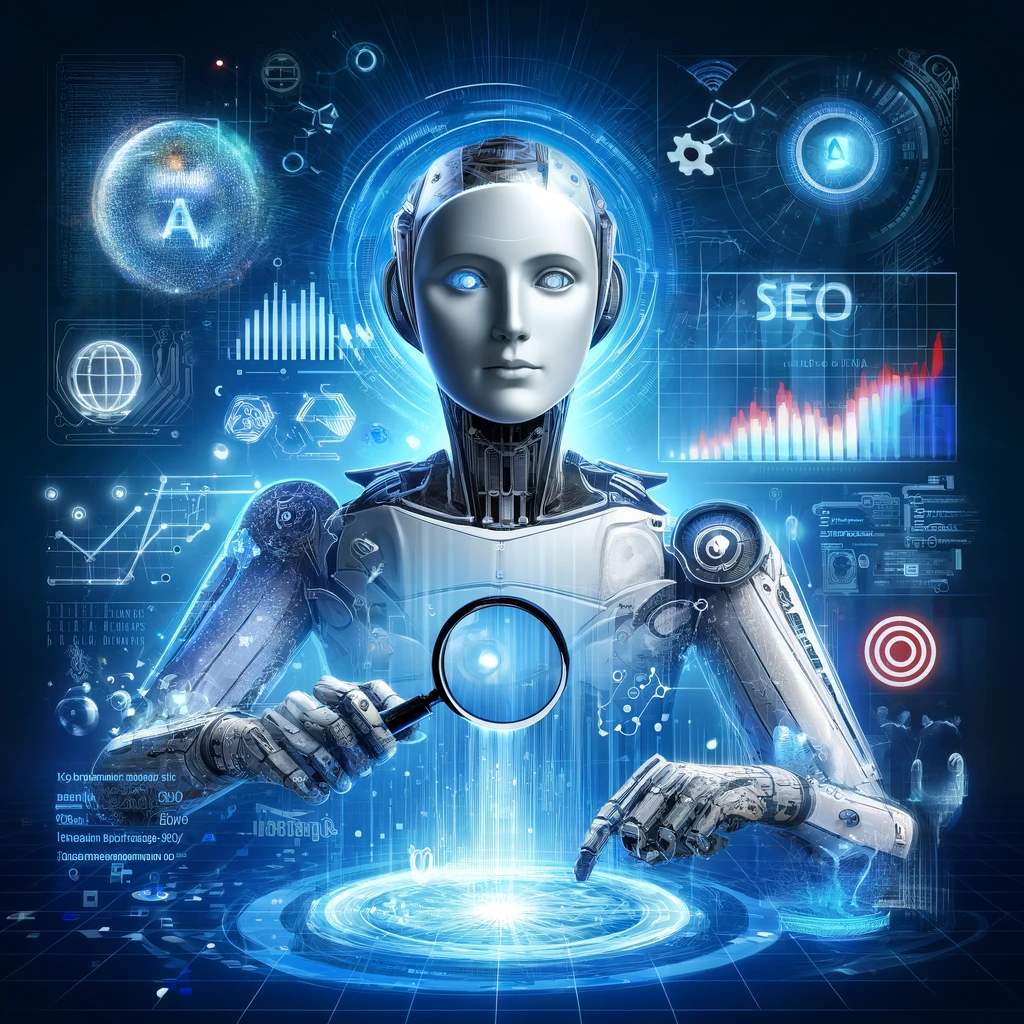Integrating artificial intelligence (AI) into the realm of search engine optimisation (SEO) is revolutionising the way content is optimised for search engines. Initially, experts feared that Google might not index AI-generated content, potentially leading to decreased traffic. However, a year later, it has become clear that well-written articles that provide value to readers will rank well because users engage with them. This article explores how AI is transforming SEO and offers practical tips for creating AI-optimised articles.
Introduction: The Impact of AI on SEO – Is It Safe?
AI is fundamentally altering the SEO landscape by automating and refining search engine optimisation processes. With increasingly sophisticated algorithms, such as Google’s often mentioned Google Search Algorithm, optimising web pages effectively has become essential. These algorithms allow search engines to better understand and rank pages, based not only on keywords but also on user intent and content relevance. This evolution compels SEO professionals to adopt new strategies to enhance their online visibility. Initial concerns about penalties for AI-generated content have subsided as the emphasis has shifted towards content quality.
Tips for Automating Article Writing with AI to Optimise Organic Search
Using AI to Research Topics and Keywords
AI can be a powerful tool for generating ideas for engaging and relevant articles. By analysing current trends and user preferences, AI can suggest topics that will capture your audience’s attention. However, it is crucial to validate these suggestions using keyword research tools like SEMrush or Ahrefs to confirm their search volume and relevance. This ensures that the topics proposed by AI are not only interesting but also optimised to attract organic traffic.
Structuring the Article with AI
Once topics and keywords are selected, AI can help structure the article by generating secondary and tertiary tags (H2, H3) that logically organise the content. A good structure improves readability for users and facilitates indexing by search engines. AI can analyse the content structure and suggest relevant headings and subheadings that accurately match user searches by incorporating the selected keywords from previous steps. For example, it might suggest an introduction, detailed sections on each aspect of the topic, and a conclusion, while ensuring that keywords are strategically placed.
Writing Articles with AI
With a well-defined structure and relevant keywords, AI can assist in writing the article. AI-assisted writing tools can produce content that naturally integrates keywords and key phrases sought by users. However, it is crucial to verify facts, sources, and ensure that the content quality is up to standard. Human verification is indispensable to ensure that the text meets the quality and authenticity standards required by search engines and readers. Reviewing and refining AI-generated content ensures that it is coherent, accurate, and engaging.
Human Proofreading
While AI can produce high-quality content, human proofreading remains essential. Manual verification and editing ensure that the content is error-free, that the tone and style match your brand’s voice, and that the text is engaging and informative. This step also ensures that the content is authentic and meets the expectations of readers and search engines. Human proofreading allows for refining the content to achieve a higher quality level.
Challenges and Perspectives of Using AI in SEO
Adapting to Algorithmic Changes
One of the biggest challenges is the need to continuously adapt to updates in search engine algorithms, which are becoming increasingly complex with the integration of AI. SEO professionals must stay informed of the latest trends and adjust their strategies accordingly, ensuring that AI-generated content meets Google’s quality standards.
Future Prospects
In the future, AI is expected to continue playing a growing role in SEO, making search engine strategies even more precise and user-focused. Advanced personalisation and automation could make SEO more effective, while presenting challenges in terms of content creativity and originality.
In conclusion, AI is transforming SEO by providing powerful tools to (partially) automate the optimisation of web content. Indeed, if the content is relevant, Google will index it regardless. At All-In Factory, we leverage these technologies to help you optimise your online presence and achieve your visibility goals. Do not hesitate to contact us to find out how our solutions can transform your SEO strategy.


 English
English Français
Français Deutsch
Deutsch
Leave a Reply